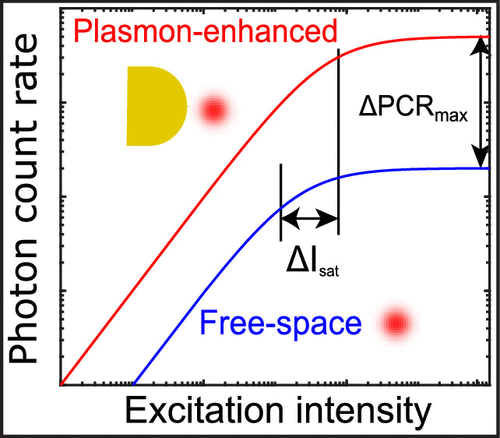Rachel wins The Best Paper Award at Europtrode 2018
The Europtrode XIV in 2018 was held on 25-28th March in Naples, Italy. Rachel's talk on plasmonic biosensors won The Paper Award. Congratulations to Rachel! The Best Paper Award is...
Peter Zijlstra Group

DOI: doi.org/10.1021/acs.jpclett.0c00155

Yuyang Wang, Matěj Horáček, and Peter Zijlstra
Plasmon resonances have appeared as a promising method to boost the fluorescence intensity of single emitters. However, because research has focused on the enhancement at low excitation intensity, little is known about plasmon–fluorophore coupling near the point where the dye saturates. Here we study plasmon-enhanced fluorescence at a broad range of excitation intensities up to saturation. We adopt a novel DNA-mediated approach wherein dynamic single-molecule binding provides a controlled particle–fluorophore spacing, and dynamic rebinding circumvents artifacts due to photobleaching. We find that near saturation the maximum photon count rate is enhanced by more than 2 orders of magnitude at the optimal particle–fluorophore spacing, even for a dye with a high intrinsic quantum yield. We compare our results to a numerical model taking into account dye saturation. These experiments provide design rules to maximize the photon output of single emitters, which will open the door to studying fast dynamics in real time using single-molecule fluorescence.